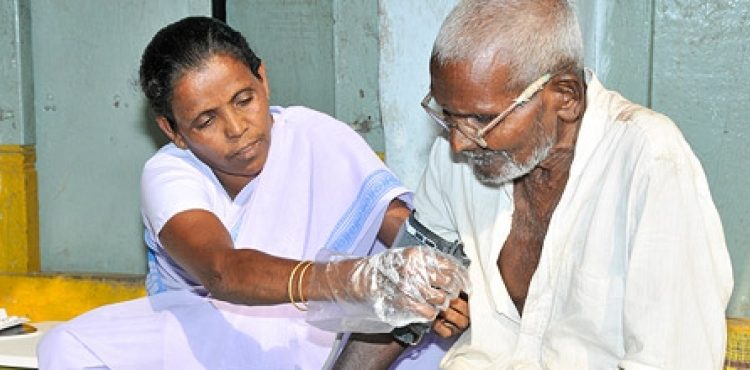
Response to the Zero Draft of UHC Political Declaration
On 24 May 2023, the United Nations (UN) presented the Zero Draft of the Political Declaration on Universal Health Coverage (UHC). The document, which is the first version of the commitments on UHC that countries will sign up to later this year, will now go through a process of negotiation as governments around the world have their say, before a final version is adopted at the High-Level Meeting on UHC at the UN in New York in September.
The Declaration effectively recognises the essential tenets of UHC[1], highlighting the need for whole-of-society, equity-based and life-course approaches, including for non-communicable diseases (NCDs) and injuries [PP10]. We welcome the acknowledgement that service coverage for NCDs is inadequate [PP16], and suggest the text is further strengthened with a mention of mental health and neurological conditions, as major NCDs affecting 450-500 million people worldwide.
The George Institute also welcomes the emphasis on primary health care as the cornerstone of UHC, and the recognition of the importance of monitoring and accountability, including the collection of quality, timely and reliable data, disaggregated by income, sex, age and other characteristics to monitor progress and identify gaps.
Responding to the Zero Draft, Justin Koonin, Co-chair of UHC2030 and Distinguished Fellow at The George Institute, said:
‘If the 2019 Declaration was about our aspirations for UHC, the 2023 declaration must be about implementation. We call on governments to demonstrate political leadership and to ensure that the political declaration is as concise as possible, that it is action oriented, and people centred. We do not just want to hear that member states are committed to UHC. We want to hear what member states are going to do, and how and when. 2023 must give us something new and we have the roadmap to do that’.
We are pleased to see the focus on stopping the trend of catastrophic out-of-pocket expenses for health [PP31]. Out-of-pocket (OOP) spending per facility visit on NCDs is double the amount spent for infectious diseases, according to a new report titled "Paying the Price" co-authored by The George Institute and NCD Alliance. People living with NCDs in low- and lower-middle-income countries bear a heavy weight of OOP expenditures for their care, running the risk of postponing treatment or forgoing it entirely due to cost. Wide-ranging repercussions of foregoing treatment include, for example, the loss of money or work, which has an impact on entire households and can last across generations.
We also welcome the recognition in the Zero Draft of the need to mainstream a gender perspective on a systems-wide basis when designing, implementing, and monitoring health policies, considering the specific needs of all women and girls and other gender minorities [OP15]. However, we would like to see this language strengthened further, with a recognition of the need to provide gender-transformative health services that actively address gender-related barriers to health care services for people of all genders, that ensure access to gender-specific health needs, and that prioritise the most marginalised women and girls and gender-diverse people.
The Declaration highlights the need to promote participatory, inclusive health governance for UHC, including ‘by exploring options to promote and institutionalise mechanisms for a meaningful whole-of-society approach and social participation’ [OP48]. We welcome this inclusion but would like to see a stronger commitment to institutionalising social participation mechanisms, through transparent, participatory platforms. These platforms should equip and support communities, people with lived experience, and civil society actors to contribute to the development, implementation, and evaluation of UHC strategies, policies, reforms and/or programs, including assessing progress towards UHC.
"There are important legacies of institutionalised social participation in many parts of the world - drawing from the women's movement, the HIV movement, and people's mobilisations around the right to health - that offer lessons both in terms of what to do, and what not to do, and we must learn and adapt from them." – Devaki Nambiar, Program Director, Healthier Societies Strategy, George Institute for Global Health India
Governments must prioritise research to document and evaluate social participation mechanisms, to identify how participation can be strengthened and made more inclusive, by eliminating barriers to the meaningful participation of those most impacted, particularly those who are marginalised. Research institutions have a critical role to play in generating this evidence, using methods that are sensitive to context, rigorous, ethical, and equitable.
Individual countries will make their own paths to UHC. But in each case, paving this path with deep knowledge, actionable insights, and evidence for accountability will involve partnerships between government, providers, development partners, civil society, communities - and researchers.
Further Reading:
- The George Institute is a member of the Social Participation for Health: Engagement, Research, and Empowerment (SPHERE) Consortium, a partnership with the Civil Society Engagement Mechanism for UHC2030, the World Health Organization, and national partners in countries including Vietnam, Kenya, and Argentina. Over a four-year period, SPHERE will document experiences of advancing social participation for health, collaborate with communities to promote and evaluate context-specific implementation approaches, and draw lessons to advance the broader UHC agenda.
- The UHC Action Agenda, sets-out action-oriented policy recommendations and concrete milestones to inform the UHC political declaration and can reinvigorate progress towards UHC, if implemented by country leaders.
- ‘Paying The Price’, a new report co-authored by The George Institute and NCD Alliance provides a thorough examination of the economic burden of noncommunicable diseases on households and the mechanisms to reduce out of pocket expenditures.
[1] Universal Health Coverage (UHC) means that all people have access to high-quality, patient-centric, integrated health services throughout their life course, when and where they need those services and without incurring financial hardship.








